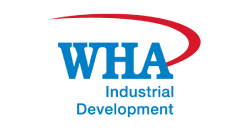Articles
Hemaraj CEO Spoke to Bangkok Post: The Case for the Carmakers By: Chiratas Nivatpumin
16/03/2009By: Chiratas Nivatpumin
Published: 16/03/2009 at 12:00 AM
Newspaper section: Business
Hopes are fading fast for any sweeping financial aid package from the government for the beleaguered auto sector, potentially threatening thousands of jobs nationwide.
Of course, the woes facing the automakers - US, Japanese and German alike - are certainly not unique to Thailand. Across the globe, the major car manufacturers are faced with the reality of too much production capacity against too little demand.
If wrestling with current market conditions is tough enough, dealing with short-sighted policies only adds to the frustrations.
Punishing tax rates, restrictive labour laws and questionable strategic policies are among the issues faced by Thailand's auto sector, heralded in better times as the next "Detroit of Asia".
While today such a slogan might seem more an epithet, considering the challenges faced by US automakers, there is little disputing the rapid growth and importance of the auto industry.
"The auto industry accounts for 10.5% of the economy and about the same share of exports," said David Nardone, the president and chief executive of Hemaraj Land and Development Plc.
"Autos have a huge knock-on effect across a number of other industries, whether it be steel, plastics or rubber. What other sector has such a profound impact on the economy?"
Mr Nardone certainly is no uninterested party. One-third of Hemaraj's industrial estate clients are tied to the auto sector, 135 companies in all including global giants Ford, Mazda and General Motors.
But while Thailand may not be able to do much about global demand - more than half of all cars produced are for export - policy certainly can influence the domestic market.
Excise taxes are exorbitantly high for passenger vehicles, a fact that has helped spur development of the light pickup market but deterred innovation in passenger cars.
Mr Nardone said energy policies had similarly impeded the industry, pointing to heavily subsidised LPG as a factor all but killing the diesel market, despite its superior technology and energy efficiency. "We need policies that lead to long-term competitiveness, not pandering to workers in anticipation of the next election," he said bluntly.
"Why does Thailand need to charge high taxes on autos? It's not just about stimulus. It's about being competitive, about creating a favourable long-term industrial investment climate. You can't have a thriving auto industry without a strong domestic market."
But the Finance Ministry, already struggling with declining tax revenues, has already indicated that it would reject calls made by automakers to cut excise taxes on cars to help spur demand.
Mr Nardone, however, pointed that it was difficult to understand the distinction between autos and property, which received 40 billion baht in temporary tax breaks from the government in January.
"Temporary tax breaks might steal car orders from next year. But it's more important to get to next year," he said drily.
Labour reforms are another lurking issue for Thailand.
Worldwide, across any number of industries, companies are moving to shrink their production pipelines and inventory.
Mr Nardone said layoffs were inevitable in an economic downturn of this magnitude. But shifting the costs of social services to the private sector only increased pressure on businesses.
"Companies in Thailand suffer from high severance costs and a high social security burden. I think it would be better for the government to take greater responsibility for [helping] the unemployed, rather than shift the burden to the private sector," he said.
Thailand's restrictive labour laws combined the "worst of France and the worst of Germany", Mr Nardone said bluntly, a condition that could result in more companies shifting to part-time contract labour to reduce costs.
Even so, he is cautiously optimistic about the future and the new Abhisit Vejjajiva government, noting that the cabinet was open to listening to the problems voiced by the private sector.
"There are lots of positives for Thailand as an investment destination. And a lot of money is being spent worldwide. Whether it be six, nine or 12 months, a turnaround will come," Mr Nardone said.
Hemaraj ended 2008 with profits of 1.34 billion baht, its best showing in five years and up 15% from the year before, thanks in part to higher dividends and profits from associated companies and reversals of specific tax and transfer fees.
Revenues dropped 5% in 2008 to 4.98 billion baht, although the company posted strong industrial estate land sales of 2.84 billion, up 32% from the previous year. Service revenues, including utilities and small factory rentals, rose 20% year-on-year to 1.26 billion baht.
Mr Nardone said Hemaraj would see a sharp slowdown in the first half, possibly as much as 30% to 40% in revenues.
"But our debt position is strong, with a debt-to-equity position of 0.57:1. We are also raising our cash position, and have cut back on capital spending. But we are moving along with our strategic long-term plan," he said.
The strategy for now was to complete turnkey factories and estate development already in the pipeline, but cut back in new acquisitions as demand has fallen.
Hemaraj's position as a premium estate operator had helped reduce pressure to slash prices, Mr Nardone said, as clients recognised the value of the firm's infrastructure and positioning as serving an integrated supply chain.
He shrugged. "The turnaround will come. What we need to do now is prepare for that turnaround, to be ahead of the curve.
"What can we do to support long-term development, to support the country's competitiveness? I think these [auto sector] jobs are good jobs, high-paying jobs. They should be protected."
Shares of Hemaraj (HEMRAJ) on the Stock Exchange of Thailand currently are trading near their 52-week low of 0.47 against a high of 1.47. The stock closed on Friday at 0.49 baht, unchanged, in trade worth 1.07 million.

